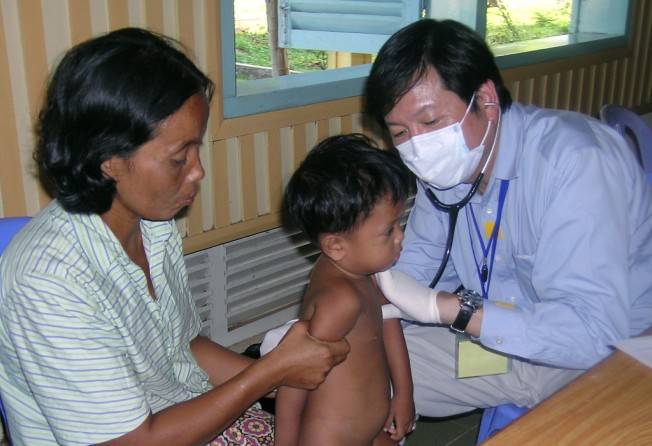Dedicated paediatrician keeps Hong Kong’s infant mortality rate low
Consultant paediatrician Vincent Leung has devoted his life to improving the odds for babies

Vincent Leung has his own adaptation of Lao Zi’s famous quote from the Dao De Jing, “a life of 100 years begins with a single breath”. He has dedicated his life to improving the odds for babies, “they are the most helpless, the most needy,” he says. His efforts have contributed to the fact that Hong Kong has one of the lowest infant mortality rates in the world.
He has achieved many other things as well. At the age of 30, Leung was the youngest consultant paediatrician ever appointed at Kwong Wah Hospital. At the time, the hospital delivered the most babies in Hong Kong. Some 10,000 were born every year at the overworked and understaffed public hospital in Yau Ma Tai.
A bureaucratic restriction prevented Kwong Wah from having intern doctors to help with the heavy workload. Leung negotiated a way past this and instantly solved severe staffing problems. “I was very happy about that”, he says.
During the Sars outbreak of 2003, Leung noticed that children were spreading the illness without succumbing to symptoms themselves. He wrote a letter to the editor of The South China Morning Post, urging the chief executive to close the schools. The schools were closed the next day. “I’m not sure if it was because of my letter”, he says.
In last year, The Red Cross awarded Leung a Hong Kong Humanity award, recognising his 40-year career in paediatric care. Leung has often been a trail blazer in the field, with successes both visionary and practical.
In 2007, he led a study of 3,000 caesarean section operations. He discovered these babies to have a higher rate of respiratory problems. As many mainland Chinese were coming to Hong Kong to give birth, most opted to book caesarean deliveries due to the maximum one-week stay they were permitted. Leung advised his hospital to increase the minimum gestation for caesarean operations from 37 to 38 weeks. The change brought a significant reduction in both the rate of birth complications and respiratory illness. Most Hong Kong hospitals quickly followed suit.
Basic knowledge and training is often lacking in poor and rural areas. In 2006, Leung began organising practical training and equipment provision in Yunnan, and has since expanded this work to other parts of southern China, including Guangxi and Guizhou.
Between 2006 and 2010, Yunnan’s infant mortality rates dropped by almost 30 per cent, compared to a national decrease of 15 per cent. “I can’t say that we are responsible for this, but we are glad that we took part in it”, says Leung.
Leung’s modesty and dedication to helping families might have something to do with his upbringing. He grew up in a large household, one of five children in a family that was not rich. He got through high school and university winning scholarships and bursaries, but turned down a place at Cornell University so he could help his family. His explanation demonstrates a strong commitment to helping those in difficult circumstances. Studying in Hong Kong would allow him to become a doctor in five years, sooner than had he travelled to the US for his degree. “The earlier I graduated, the earlier I could help my parents,” he says.
A strong work ethic means long hours, and little time for rest and spending time with his own family. But he brushes these difficulties aside, “It’s a price I have to pay over and I’m so glad that my wife is quite supportive”. Although he admits sometimes she complains about him working weekends. “I’m well past the age of retirement”, he is laughing. Will he stop any time soon? “I’m thinking about it”, he says.